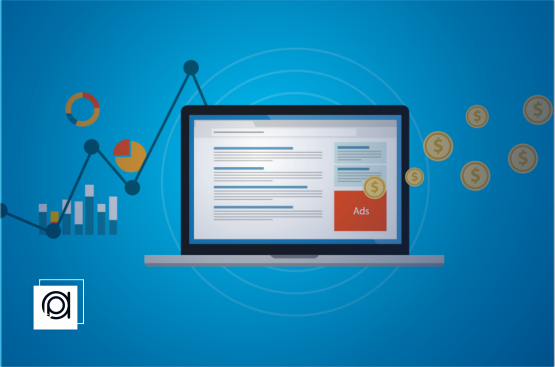All you need to know about Small Business Loans
Many times, launching and operating a small business needs a substantial financial investment. Small company loans are frequently used by entrepreneurs to finance expansion, control cash flow, or get beyond unforeseen obstacles, even when personal savings and investments may be sufficient to pay startup costs. Although they have advantages and limitations like every financial instrument, small company loans may be quite effective.
Among the oldest types of funding available to businesses are term loans. They entail taking out a loan from a lender for a certain sum of money, which is then paid back over time—usually in fixed monthly installments. Long-term investments like buying equipment, growing a business, or buying real estate are common uses for term loans.
What are Small Business Loans?
Small Business Loans are financial instruments intended to help small business owners and entrepreneurs meet a range of financial demands. For new ventures, small businesses that are already operating, and companies that want to grow, these loans may be quite important. There are several types of small company loans, each designed to satisfy particular budgetary needs.
An organization can access a revolving credit limit through a business line of credit as needed. Though it is usually used for higher costs, it is comparable to a credit card. Business lines of credit can be used to take advantage of unforeseen business opportunities, manage cash flow changes, and pay for short-term operating needs.

Advantages of Small Business Loans
We’ll go into more depth about each of these topics in this post, offering advice to entrepreneurs who are thinking about using loans to fund their endeavors.
Access to Capital
One of the most obvious advantages of small business loans is the access to capital they provide. Securing financing enables entrepreneurs to cover startup costs, invest in equipment, hire staff, and expand operations. Without these funds, many small businesses may struggle to get off the ground or sustain growth over time.
Business Expansion
Small business loans can act as a catalyst for expansion. Whether a company aims to open a new location, enter new markets, or introduce new products and services, a well-structured loan can provide the financial means to pursue growth opportunities. This expansion, in turn, can lead to increased revenue and a stronger market presence.
Smooth Cash Flow Management
Maintaining a healthy cash flow is critical for small businesses, especially during periods of rapid growth or economic uncertainty. Small business loans can help business owners manage cash flow by providing a financial cushion to cover operational expenses, bridge gaps between receivables and payables, and navigate seasonal fluctuations in revenue.
Building Business Credit
Responsible use of small business loans can contribute to building a positive credit history for the business. Timely repayment of loans can enhance the company’s credit score, making it easier to secure future financing at more favorable terms. A strong credit profile is essential for long-term financial stability and flexibility.

Flexibility in Use
Unlike some forms of financing that come with specific restrictions on use, small business loans offer flexibility. Entrepreneurs can allocate the funds based on their business needs, whether it’s purchasing inventory, upgrading technology, or marketing initiatives. This versatility makes loans an adaptable solution for various business scenarios.
Disadvantages of Small Business Loans
Small business loans serve an important role in assisting entrepreneurs and promoting the growth of small firms. The availability of many loan kinds enables company owners to select the financing solution that best meets their individual requirements and financial conditions. Entrepreneurs must, however, carefully analyze loan terms, interest rates, and repayment structures in order to make educated decisions that contribute to their company’ long-term success.
Interest Costs
One of the primary disadvantages of small business loans is the cost of borrowing. Lenders charge interest on the principal amount, and depending on the loan type and terms, these costs can add up significantly over time. High-interest rates can erode profits and impact the overall financial health of the business.
Repayment Obligations
Small business owners taking out loans must adhere to a structured repayment schedule. Monthly or quarterly repayments can strain cash flow, especially during challenging economic times. Failure to meet repayment obligations can result in penalties, damage the business’s credit score, and, in extreme cases, lead to legal consequences.
Risk of Overleveraging
While loans provide access to capital, there’s a risk of overleveraging – borrowing more than the business can reasonably repay. Excessive debt can hinder long-term growth and put the company at risk if market conditions change or unexpected challenges arise. Careful financial planning and realistic projections are crucial to avoiding overreliance on borrowed funds.

Collateral Requirements
Many traditional lenders require collateral to secure small business loans, which can be a significant barrier for some entrepreneurs. Offering personal or business assets as collateral poses a risk, as failure to repay the loan could result in the loss of valuable property. This requirement can limit access to financing for businesses without substantial assets.
Qualification Challenges
Small business loans often come with stringent qualification criteria. Lenders evaluate factors such as credit history, business performance, and cash flow projections before approving a loan application. Startups or businesses with a limited track record may find it challenging to meet these criteria, limiting their access to financing.
Tips for Making Informed Decisions
Conduct Thorough Research
Before pursuing a small business loan, entrepreneurs should thoroughly research different lenders, loan types, and terms. Comparing interest rates, repayment schedules, and eligibility criteria can help business owners make informed decisions that align with their financial goals.
Assess Financial Health
Understanding the current financial health of the business is crucial. Conducting a comprehensive assessment of cash flow, debt-to-equity ratio, and profitability can help determine the appropriate loan amount and repayment terms the business can comfortably manage.
Explore Alternatives
While small business loans are a common financing option, they are not the only one. Entrepreneurs should explore alternative sources of funding, such as grants, angel investors, or crowdfunding, to find the solution that best fits their business model and goals.
Create a Detailed Business Plan
Having a detailed business plan that outlines the purpose of the loan, projected return on investment, and repayment strategy is essential. Lenders often require a solid business plan as part of the application process, and it serves as a valuable tool for guiding the business’s growth.
Consult with Financial Advisors
Seeking advice from financial advisors or business consultants can provide valuable insights into the best financing options for a particular business. These professionals can help analyze the pros and cons of different loan structures and guide entrepreneurs in making well-informed decisions.
Conclusion
For companies looking to boost expansion, control cash flow, or overcome obstacles, Small Business Loans may be an invaluable tool. Making decisions that support the long-term growth of the company requires knowledge of the benefits and drawbacks of these loans.
Small company owners may strategically utilize loans to advance their operations toward sustainable growth by carrying out extensive research, evaluating their financial situation, considering alternative options, drafting a comprehensive business plan, and consulting with experts.

































2 comments
[…] The Advantages and Disadvantages of Small Business Loans […]
[…] The Advantages and Disadvantages of Small Business Loans […]